Agentic Reasoning AI Doctors: Transforming the Future of Healthcare in Singapore
The rise of Agentic Reasoning AI Doctor is transforming healthcare by enabling AI to make complex, human-like decisions. Unlike traditional AI, agentic AI mimics reasoning to improve diagnostic accuracy, personalize treatments, and automate healthcare processes.
In Singapore, where innovation in healthcare is a priority, Agentic AI promises to enhance both patient care and operational efficiency. In this blog, we explore how agentic reasoning is reshaping healthcare, its benefits, challenges, and how hospitals can successfully integrate this technology.
Table of Contents
- What Is an Agentic Reasoning AI Doctor?
- How Agentic Reasoning AI Doctors Work
- Why Agentic Reasoning AI Doctors Matter for Healthcare Providers in Singapore
- How Are Agentic Reasoning AI Doctors Different from Traditional AI?
- Best Scenarios for Using Agentic Reasoning AI Doctors
- What Are the Main Challenges and Ethical Considerations of Agentic AI in Healthcare?
- How Can Hospitals Implement Agentic AI Successfully with Outsourcing Experts?
- Kaopiz – Your Trusted Partner in Agentic Reasoning AI Doctor Solutions
- The Future of Agentic AI Healthcare in Singapore
- Conclusion
- FAQs
What Is an Agentic Reasoning AI Doctor?
An Agentic Reasoning AI Doctor is a groundbreaking innovation in healthcare, where artificial intelligence goes beyond just processing data to mimic human-like reasoning in decision-making. Unlike traditional AI systems, which typically follow fixed algorithms, Agentic AI has the ability to evaluate complex situations, adapt to new information, and make autonomous decisions, similar to how a human doctor would.
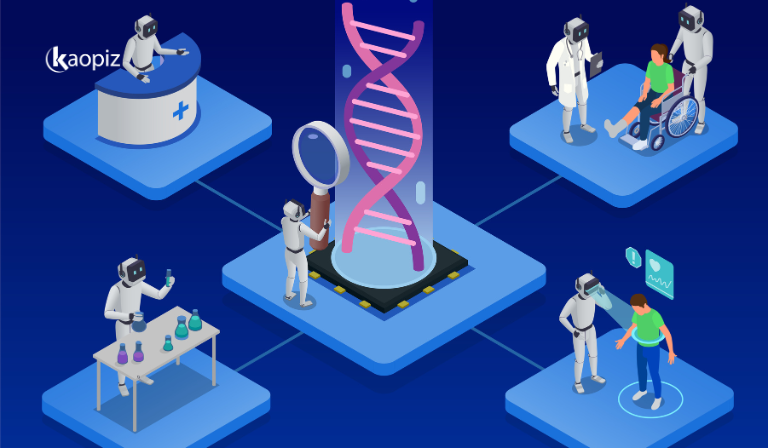
At its core, artificial intelligence reasoning uses advanced machine learning models to analyze medical data, recognize patterns, and make inferences. This AI can diagnose diseases. It also considers multiple factors, such as patient history, genetic information, and current health trends. Based on this, it recommends personalized treatment plans.
What sets Agentic AI apart is its ability to simulate reasoning in a way that enables it to handle more dynamic, real-world medical scenarios. It can make informed decisions even when faced with uncertainty, just like a human doctor, by integrating both structured and unstructured data to assess patient conditions, predict outcomes, and suggest actions.
How Agentic Reasoning AI Doctors Work
Agentic Reasoning AI Doctor combines machine learning and human-like reasoning to assist in medical decision-making. Here’s how it works:
- Data Analysis: AI collects and analyzes patient data, such as health records, tests, and imaging, using advanced algorithms.
- Reasoning: It applies agentic reasoning to evaluate the data, considering various factors like lifestyle and genetics, to simulate human decision-making.
- Decision Support: The AI provides personalized treatment recommendations and alerts doctors to potential issues, supporting faster, more accurate diagnoses.
- Continuous Learning: The system learns from new data and feedback, improving its decision-making capabilities over time.
- Collaboration: AI and doctors work alongside, enhancing their ability to make informed decisions and improving patient outcomes.
By blending reasoning AI with healthcare expertise, Agentic Reasoning AI Doctor optimizes care and efficiency.
Why Agentic Reasoning AI Doctors Matter for Healthcare Providers in Singapore
The healthcare industry in Singapore is experiencing rapid growth and transformation, driven in large part by technological advancements. The AI healthcare market reached $32.34 billion in 2024 and is projected to soar to $431.05 billion by 2032, reflecting the massive investment in AI-driven healthcare solutions.
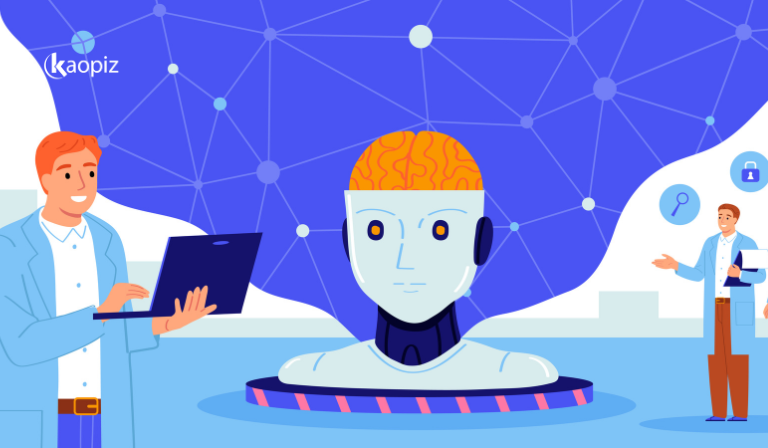
Moreover, Agentic Reasoning AI Doctors are central to this transformation, addressing some of the most pressing challenges in healthcare. Here are some advantages:
- Reducing Diagnostic Errors: Diagnostic inaccuracies can delay treatment or cause severe complications. Research from Stanford Medicine shows Agentic Reasoning AI can reduce errors by up to 30% in certain tasks, improving overall diagnostic accuracy.
- Enhancing Healthcare Efficiency: By automating routine tasks like data analysis and diagnostic support, Agentic AI doctors free up healthcare professionals, enabling them to focus on complex cases and improving the speed of patient care.
- Alleviating Healthcare Workforce Pressures: With growing patient demand and workforce shortages, agentic reasoning AI supports doctors and nurses by aiding in decision-making, reducing burnout, and helping to manage higher patient volumes effectively.
- Improving Patient Outcomes: Agentic AI provides personalized treatment plans, accelerates diagnoses, and reduces human error, leading to better patient outcomes and ensuring timely and efficient healthcare delivery.
How Are Agentic Reasoning AI Doctors Different from Traditional AI?
Agentic Reasoning AI differs significantly from traditional AI in its ability to mimic human-like reasoning. Traditional AI systems follow predefined algorithms and excel at automating repetitive tasks like image recognition or data entry. They work within the confines of set rules and are limited to processing structured data.
In contrast, Agentic AI can handle dynamic, complex scenarios by evaluating multiple data points, making autonomous decisions even in uncertain or ambiguous situations, just like a doctor would assess various factors in a diagnosis.
Unlike traditional AI, which requires manual updates to remain relevant, Agentic AI continuously learns and adapts over time. It improves its reasoning capabilities through ongoing interaction with new data, feedback, and real-world applications. This learning ability makes Agentic AI far more flexible and suited for real-time healthcare decision-making.
Here is the table comparing Agentic Reasoning AI Doctors vs Traditional AI:
| Feature | Traditional AI | Agentic Reasoning AI |
|---|---|---|
| Decision-Making | Follows predefined algorithms for simple tasks. | Mimics human reasoning, capable of handling complex, dynamic scenarios. |
| Adaptability | Requires manual updates and adjustments. | Continuously learns and adapts, improving over time. |
| Reasoning Process | Linear, rule-based decision-making. | Human-like reasoning, considering multiple factors in decision-making. |
| Role in Healthcare | Primarily for specific tasks (e.g., image recognition). | Provides decision support, diagnoses, and treatment recommendations. |
| Learning and Evolution | Limited ability to evolve without retraining. | Constantly learns and evolves from new data and feedback. |
Best Scenarios for Using Agentic Reasoning AI Doctors
Agentic Reasoning AI Doctor excels in complex and dynamic healthcare situations where human-like reasoning and decision-making are essential. From early disease detection to personalized treatment planning, the AI system provides valuable support in scenarios that require careful analysis and real-time decision-making.
Early Disease Detection
Agentic Reasoning AI plays a vital role in detecting diseases like cancer and diabetes at their earliest stages. By analyzing a comprehensive range of patient data—such as medical history, genetics, and lifestyle factors—Agentic AI can identify subtle patterns that may not be immediately apparent to healthcare providers.
Furthermore, one of the AI reasoning examples is that Agentic AI can evaluate medical images, lab results, and genetic data to spot early signs of cancer or predict the onset of diabetes. This enables healthcare professionals to intervene sooner, offering more personalized treatment plans that improve patient outcomes.
Early detection of conditions like cancer and diabetes can significantly reduce treatment costs, improve survival rates, and enhance overall patient care. By supporting healthcare providers with these capabilities, Agentic AI ensures more efficient, proactive AI medical automation management.
Remote Patient Monitoring & Telemedicine
Agentic Reasoning AI enhances remote patient monitoring by analyzing real-time data from wearable devices and home tools, allowing healthcare providers to track vital signs and intervene early if needed. This reduces the risk of complications and hospital readmissions.
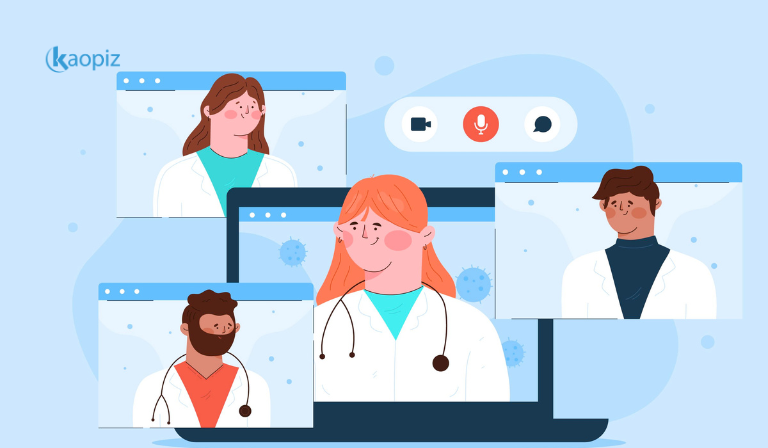
In telemedicine, Agentic AI supports virtual consultations by evaluating patient data, suggesting treatments, and diagnosing conditions remotely. It improves access to care, especially for patients in remote areas, and helps healthcare providers offer timely, personalized care without in-person visits.
Personalized Treatment Plans
Agentic Reasoning AI creates personalized treatment plans by analyzing a patient’s unique medical history, genetics, and lifestyle factors. This enables the AI to recommend tailored therapies that are more likely to be effective, improving patient outcomes.
Unlike traditional one-size-fits-all approaches, Agentic AI considers a range of variables to customize care, ensuring that each patient receives the most appropriate and targeted treatment. This personalized approach leads to more efficient, precise care and helps avoid unnecessary treatments or side effects.
Automation of Administrative Processes in Hospitals
Agentic Reasoning AI streamlines administrative tasks in hospitals by automating processes such as patient scheduling, billing, and record management. By reducing the time spent on repetitive administrative duties, healthcare providers can focus more on patient care.
AI systems can also improve accuracy by reducing human error in tasks like data entry, ensuring that patient information is accurately recorded and easily accessible. This not only boosts operational efficiency but also helps reduce costs and enhance the overall patient experience.
Clinical Decision Support for Complex Cases
AI-driven clinical support enhances decision-making, particularly for complex medical cases. Agentic AI analyzes patient data, medical literature, and past cases to support evidence-based decisions.
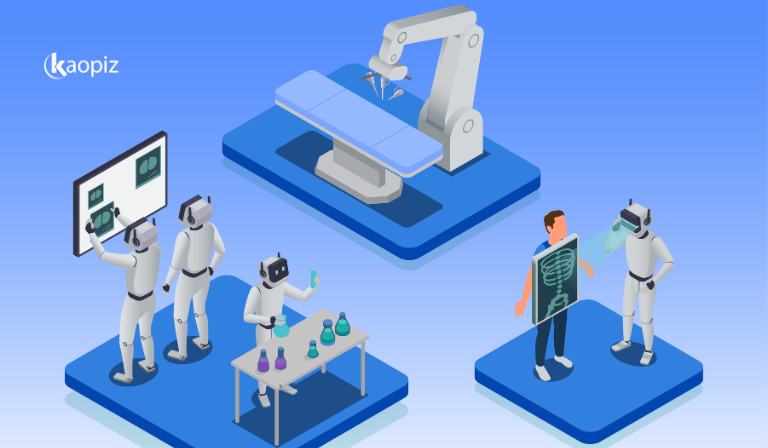
For example, in difficult diagnoses or rare conditions, Agentic AI can suggest possible diagnoses, recommend treatment options, and highlight potential risks, aiding doctors in making faster, more accurate decisions. This enhances the quality of care and reduces the likelihood of medical errors, especially in high-stakes situations.
What Are the Main Challenges and Ethical Considerations of Agentic AI in Healthcare?
While Agentic Reasoning AI holds immense potential for transforming healthcare, it also presents several challenges and ethical concerns that must be addressed to ensure its responsible use.
- Data Privacy and Security: Agentic AI requires access to vast amounts of sensitive patient data, making data privacy a critical concern. Robust cybersecurity measures and adherence to regulations like HIPAA and GDPR are essential to protect patient confidentiality.
- Bias and Fairness: AI systems can inherit biases from the data they are trained on, leading to inaccuracies in diagnosis or treatment recommendations. Ensuring AI is trained on diverse and representative datasets is key to avoiding healthcare disparities.
- Accountability and Liability: As AI takes on decision-making roles, determining responsibility in case of errors becomes complex. Clear guidelines must be established to define who is liable—whether it’s the healthcare provider, AI developer, or institution.
- Patient Trust and Acceptance: Many patients may be hesitant about AI in healthcare, fearing their care is being managed by machines. Educating patients on how AI works and ensuring human oversight is crucial for building trust and acceptance.
- Transparency and Explainability: Agentic AI models are often complex and opaque, which can make their decision-making processes hard to understand. Ensuring that AI’s reasoning is transparent and explainable is essential for patient and healthcare provider confidence.
How Can Hospitals Implement Agentic AI Successfully with Outsourcing Experts?
Implementing Agentic Reasoning AI Doctor in hospitals requires expertise and careful planning. Here’s how outsourcing AI development company can help:
- Choose the Right Partner: Work with experienced AI development companies that specialize in healthcare to guide the integration of Agentic AI and ensure compliance with regulations.
- Start with a Pilot Program: Begin by implementing a small-scale pilot in specific departments, such as diagnostics, to test AI performance before full deployment.
- Ensure Data Integration and Security: Outsourcing experts can help integrate Agentic AI with existing hospital systems (e.g., EHR) while maintaining strict data security standards.
- Provide Training and Support: Proper training for staff ensures effective use of AI tools. Continuous support is needed to address technical challenges and optimize performance.
- Monitor and Optimize: Continuous monitoring and optimization are necessary to keep Agentic AI performing at its best, with regular adjustments based on real-time data.
Therefore, partnering with outsourcing experts ensures a smooth and successful implementation of Agentic AI, improving healthcare outcomes and efficiency.
Kaopiz – Your Trusted Partner in Agentic Reasoning AI Doctor Solutions
Kaopiz is one of the top healthcare software development companies specializing in AI, delivering innovative solutions that empower healthcare providers to enhance decision-making, improve patient care, and drive operational efficiency. With over 10 years of AI expertise and a team of 600+ professionals, including many senior-level experts, we specialize in developing secure, scalable Agentic Reasoning AI Doctor systems.

Our commitment to excellence is backed by industry certifications that ensure compliance with data security and healthcare regulations, while also driving cutting-edge innovation in the AI space.
Moreover, Kaopiz offers AI development services Singapore with flexible engagement models—offshore, onsite, and dedicated teams—providing healthcare providers with the ability to implement Agentic AI solutions efficiently and cost-effectively. We offer up to 40-60% cost savings, helping you streamline operations without compromising quality.
Partner with Kaopiz to leverage the power of Agentic Reasoning AI and elevate your healthcare services with advanced, intelligent solutions.
The Future of Agentic AI Healthcare in Singapore
Singapore is positioning itself as a leader in Agentic Reasoning AI within healthcare. Here are the key healthcare software development trends shaping its future:
- Rapid AI Market Growth: The AI healthcare market in Singapore is projected to grow significantly, reaching $881.3 million by 2030, driven by increasing investments and innovation in AI-driven solutions.
- Regulatory Advancements: Singapore’s Ministry of Health is launching regulatory sandboxes to fast-track the use of AI Software-as-Medical Devices (SaMDs), simplifying the deployment of AI tools in clinical settings.
- Public-Private Collaborations: Initiatives like CHI INNOVATE 2025 are fostering partnerships between healthcare institutions and tech companies to co-develop AI solutions, such as generative AI tools for clinical decision support.
- Integration in Clinical Practice: AI-driven solutions are being integrated into clinical settings to improve diagnostics and decision-making, with AI playing a major role in personalized treatment plans and remote patient monitoring.
- Educational Advancements: Institutions like the NUS are preparing the next generation of healthcare professionals with programs in Precision Health and AI in Medicine.
Therefore, these trends position Singapore to continue leading AI healthcare innovation, improving patient care, and operational efficiency.
Conclusion
The integration of Agentic Reasoning AI in healthcare is transforming patient care and operational efficiency. From early disease detection to personalized treatment plans and clinical decision support, Agentic AI is empowering healthcare providers to deliver smarter, more accurate care.
While challenges such as data privacy, bias, and transparency remain, the future looks promising with ongoing investments and regulatory advancements.
FAQs
- Can AI Replace Doctors in the Future?
- While Agentic AI for healthcare providers can significantly enhance decision-making and support doctors in diagnosing and treating patients, it is unlikely to fully replace human doctors. AI will act as a powerful tool to assist healthcare providers, offering more accurate, faster decisions, but human oversight and empathy remain essential in patient care.
- What Are the Top Agentic AI Healthcare Trends to Watch?
-
Key trends include:
- Early disease detection using AI to spot conditions like cancer and diabetes at earlier, treatable stages.
- Personalized treatment plans tailored to individual patients based on a comprehensive analysis of their health data.
- Integration in clinical settings to support AI-driven clinical decision-making and remote patient monitoring.
- Regulatory advancements as AI solutions become increasingly integrated into healthcare systems with government backing.
- How Can Hospitals Choose Reliable AI Development Services in Singapore?
- Hospitals should look for AI development services with a proven track record in healthcare, expertise in data security, and compliance with regulatory standards (such as HIPAA or GDPR). It’s essential to partner with companies that have experience in integrating AI into clinical workflows and can provide continuous support and optimization.
- How Can Small Hospitals Leverage Agentic AI Effectively?
- Small hospitals can start with pilot programs in specific areas, such as diagnostic support or patient monitoring, before expanding. By collaborating with AI outsourcing experts, they can ensure scalable, cost-effective solutions tailored to their needs, without heavy upfront investments in infrastructure.
- How Much Does It Cost to Implement Agentic AI in Hospitals?
- The cost of implementing Agentic AI in hospitals varies depending on the scope of the solution, the scale of integration, and the chosen AI development partner. However, hospitals can expect cost savings of up to 40-60% by choosing flexible engagement models, such as offshore or dedicated teams.
Trending Post

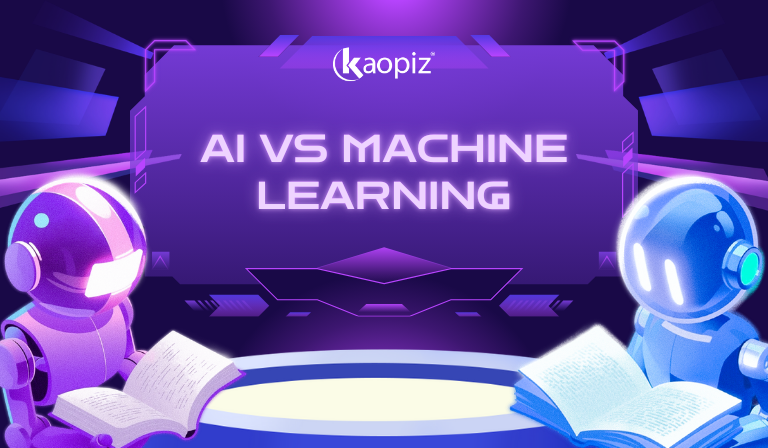
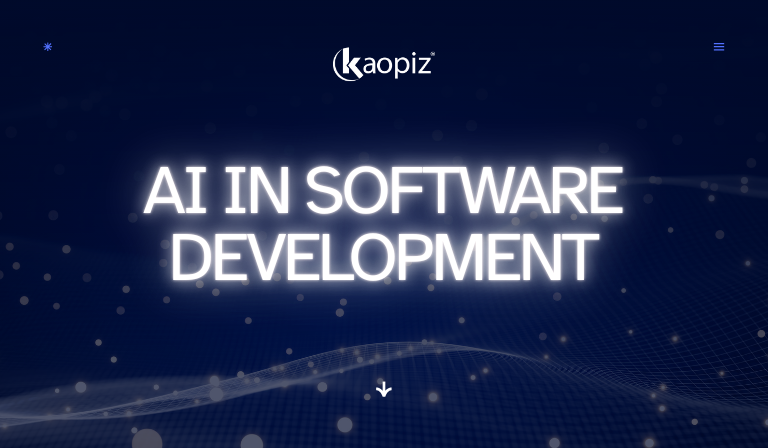
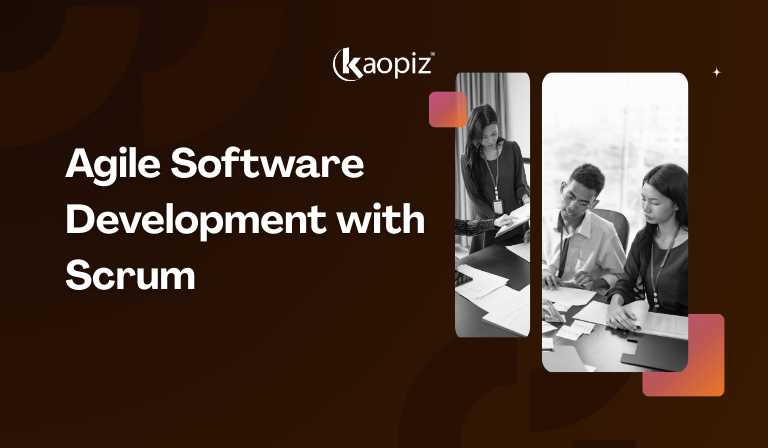
















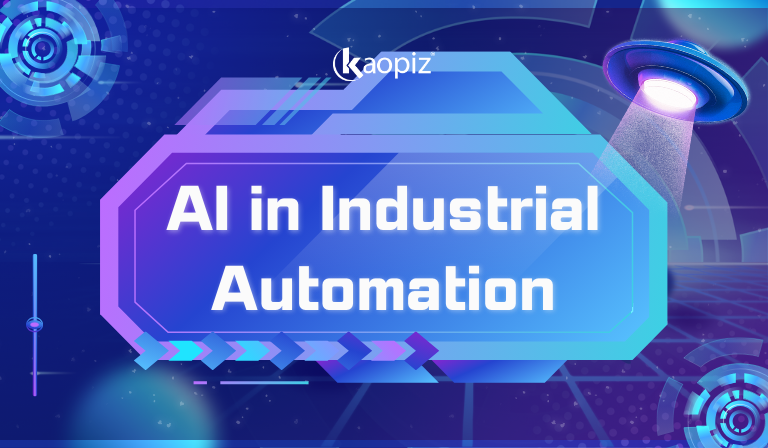

No Comments yet!